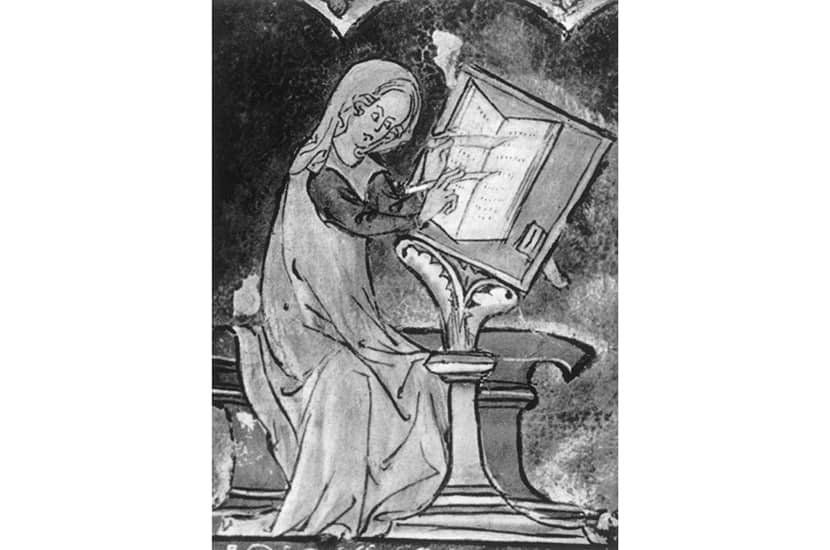It is 1158. A 17-year-old girl, born of both rape and royal blood, is cast out of the French court and condemned to spend her days in a threadbare abbey in England. She will go on to become abbess and one of the dominant forces in the land, transforming her abbey from a shack into an institution grown fat on holy power.
The girl is Marie de France, loosely based on the 12th-century poet, about whom very little is known. Into history’s silence steps the American novelist Lauren Groff, who imagines a character who seems remarkably familiar. For Marie is a strong, feminist lesbian, who doesn’t fit into her era’s gender roles, considers much religious teaching to be laughable and who worries about global warming. She is, in short, the vessel of a distinctly 21st-century social orthodoxy operating out of time.
The problem with this is not so much the anachronism but the fact we guess Marie’s thinking and reactions in advance. The heresies — such as presiding over Mass some 700 years before it is sanctioned by the Church — don’t seem that heretical; we can feel them coming. And given the countless times we are reminded of women’s underestimated resourcefulness and Marie’s all-conquering competence, brains and drive, any real sense of jeopardy about her path dissipates early on. We know this strong female leader will prevail. She has to.
But that does not prevent Matrix from being a well-paced read; nor does it spoil Groff’s delicate prose: bushes ‘dress themselves in a shivering lace of white flowers’, the sun ‘simmers’ and the moon is ‘cupped cold in the blue above’.
The novel’s best moments come when exploring the relationship between power, faith and the figurative, such as with Marie’s construction of an impenetrable labyrinth around the abbey. This is both a metaphor for female chastity and the realisation of it, protecting the nuns from the outside world. But it is also a physical parallel for Marie’s political strategy, as she wraps herself in protective layers of rumour and religious ritual. The more the abbey is cut off and the more its renown grows, the more Marie wreaths herself in divine mystery and the more her legend and power spread.
For Marie understands that mystery is essential to reputation, and reputation is a source of power. It is a shame, then, that when it comes to Marie’s character, Groff fails to heed her own insight, trading in mystery for predictability.






Comments